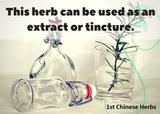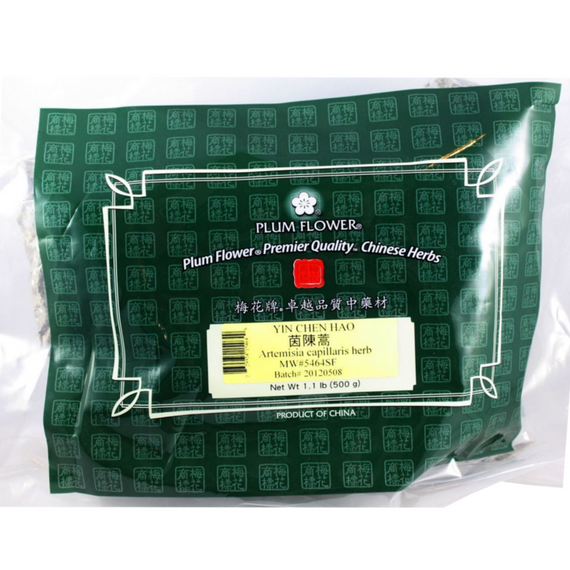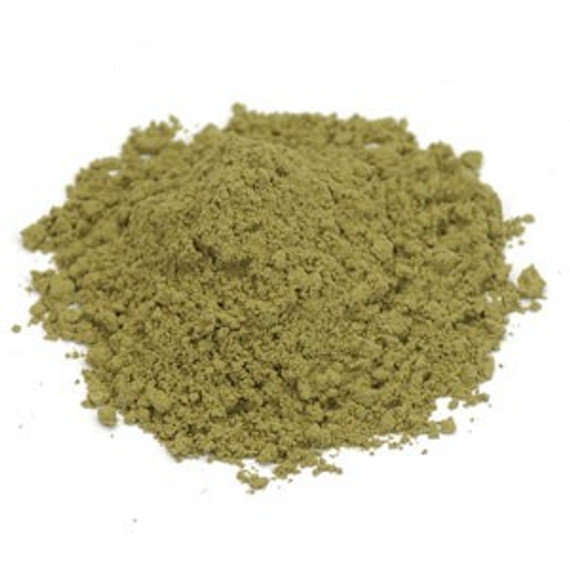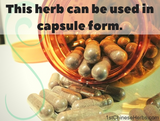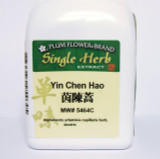Herbal Information on Yin Chen Hao in Cut Form
What is Yin Chen Hao (Artemisia Capillaris Herba)?
Yin Chen Hao, also known as wormwood or Artemisia capillaris, is a traditional Chinese medicinal herb. It is derived from the aerial parts of the Artemisia capillaris plant, which belongs to the Asteraceae family. This herb has been used for centuries in traditional Chinese medicine (TCM) for its various health benefits.
 Historical Uses of Yin Chen Hao
Historical Uses of Yin Chen Hao
Yin Chen Hao has a long history of use in traditional Chinese medicine. It is documented in ancient Chinese medical texts such as the "Shen Nong Ben Cao Jing" (Divine Farmer's Materia Medica) and the "Compendium of Materia Medica" (Ben Cao Gang Mu) compiled by Li Shizhen during the Ming Dynasty. Historically, it has been used primarily for its hepatoprotective and damp-heat clearing properties. It was also utilized to treat febrile diseases, edema, and other conditions linked to dampness and heat in the body.
Health Benefits of Yin Chen Hao
-
Liver Health: Yin Chen Hao is well-known for its ability to support liver health. It is commonly used to treat jaundice, hepatitis, and other liver-related conditions by promoting bile flow and reducing liver inflammation.
-
Clearing Damp-Heat: This herb is effective in clearing damp-heat from the body, which is a common cause of various ailments in TCM. It is particularly useful in treating conditions such as urinary tract infections, eczema, and other skin disorders associated with damp-heat.
-
Digestive Aid: Yin Chen Hao can help alleviate digestive issues such as indigestion, abdominal pain, and diarrhea by promoting the proper functioning of the stomach and intestines.
-
Anti-inflammatory and Antimicrobial: The herb possesses anti-inflammatory and antimicrobial properties, making it useful in treating infections and reducing inflammation throughout the body.
How is Yin Chen Hao Used?
Yin Chen Hao is typically used in the following forms:
-
Decoction: The most common method is boiling the dried herb in water to make a tea or decoction, which is consumed to treat various ailments.
-
Powder: The herb can be ground into a powder and taken with water or other liquids.
-
Capsules/Tablets: For convenience, Yin Chen Hao is also available in capsule or tablet form, making it easier to incorporate into daily routines.
-
Topical Application: For skin conditions, the herb can be used topically in the form of creams or poultices.
Common Name: Wormwood, Yin-chen Wormwood, Mian Yin Chen, Capillaris,
Botanical Name: Artemisia capillaris; Herba
Pin Yin: Yin-chen
Other Ingredients: None, nothing has been added to this product
Package Size: 1lb
Form: Cut
Origin: China
Brand: Nuherbs, Lab-Tested
Cautions: Do not use if nursing or pregnant. Use caution in cases without Damp-Heat. Do not use with diuretic medications.
Naturally Occurring Components: Some of the chemical constituents of Yin-chen wormwood include chlorogenic acid, salicylic acid, azelaic acid, pyrogallol tannins, oxalic acid, capillarisin, beta-elemene, beta-caryophyllene, and alpha-humulene.essential oil, chromones, flavonoids, phenylalkynes, coumarins, benzoids, lignans, scoparone.
Product Properties: Bitter, Acrid, Cool
Channels: liver, spleen, gallbladder, stomach
What Is The Difference Between Yin Chen Hao and Qing Hao, As They Are Both Artemisia.
Yin Chen Hao and Qing Hao are both important herbs in traditional Chinese medicine (TCM), but they come from different plants and have distinct uses and properties.
Key Differences:
-
Botanical Source:
- Yin Chen Hao: Derived from Artemisia capillaris.
- Qing Hao: Derived from Artemisia annua.
-
Primary Applications:
- Yin Chen Hao: Mainly used for liver and gallbladder issues, and to clear damp-heat. It’s particularly effective for jaundice and hepatitis.
- Qing Hao: Primarily used for treating malaria and reducing fevers, especially those related to heat from deficiency and summer-heat.
-
Nature and Effect:
- Yin Chen Hao: Slightly cooler, focusing more on clearing damp-heat.
- Qing Hao: Much colder, with strong properties for clearing heat from both excess and deficiency, and known for its fever-reducing capabilities.
Summary of Yin Chen Hao
- Herbs which Regulate Water, and Drain Dampness
- Supports healthy bladder function
- Supports healthy liver
- Clears Damp Heat
Yin Chen Hao is a versatile herb in TCM that works synergistically with the liver, spleen, gallbladder, and stomach channels to clear damp-heat, support digestion, promote bile flow, and protect against inflammation. Its wide range of applications makes it a valuable addition to herbal treatments aimed at improving digestive and liver health.
Check out our How to Use Bulk Herbs page to see how to use herbs correctly. Our web page is constantly expanding, as of today we have articles on:
How to make salves, poultice, tinctures, teas, capsules, gargles, and foot bathes
How to make a citrus facial splash
Cayenne pepper: Caterpillar and aphid spray ( Natural insect repellent )
Citrus potpourri basket.
Packaging and Storage
Processing and storage standards make the difference in preserving the quality of our bulk herbs. Our herbs have a shelf life of 24-36 months. Our natural herbs retain their freshness and quality without added preservatives. Special measures are taken to store the herbal materials to maintain their optimum required conditions for humidity, temperature and protection from light.
Request a Certificate of Analysis for Yin Chen Hao in bulk herb form.
Quality of Lab-Tested Herbs
The best herbs are gathered from their indigenous regions to ensure that the proper climate, soil and water crucial to the content of active ingredients are present, as most herbs indigenous to one region cannot be properly grown in another. Our herbs are wild crafted or sourced from 52 GAP (Good Agricultural Practice) Farms when possible. The source of the herbs will be indicated on the COA (certificate of analysis). Testing each batch of herbs is dual-lab tested by our in-house lab and independent third party lab. Our in-house lab is equipped with instruments such as a high performance liquid chromatograph, moisture determination meter, Fourier transform infrared spectrometer, atomic absorption spectrophotometer, gas chromatograph, etc. In addition, the following additional tests are performed:
- Microbacteria
- Pesticides (over 200 pesticides tested for with the Uab 2000 screen)
- Heavy Metals (lead, mercury and arsenic)
About Traditional Chinese Herbs
Traditional Chinese herbs encompasses the use of different parts of plants, such as the leaves, roots, stems, flowers, and seeds. These plant parts are often used as a tea, decoctions, extracts, made into capsules or even a footbath. These bulk herbs should be regarded as an added feature to modern western healthcare, and not as a replacement. Chinese traditional herbs (sometimes used as teas) emphasize harmony and balance. We encourage you to educate yourself on herbs and supplements by researching reputable sites and books. Have an open discussion with your physician on what will be most beneficial for your health issues. Discuss the possible interactions of herbs and pharmaceuticals with your pharmacist or physician.
"Yin Chen must be harvested for its aerial part in spring to exhibit pharmacologic effects. An old saying, “Yin Chen can be used as Yin Chen for treating diseases in February, but can only be used as lumber for burning in May (二月茵陳三月蒿,五月茵陳當柴燒)”, indicates huge difference in bioactive component contents of Yin Chen Hao in different seasons."1
References:
https://www.ncbi.nlm.nih.gov/pmc/articles/PMC3924980/
https://www.americandragon.com/Individualherbsupdate/YinChen(Hao).html
https://en.wikipedia.org/wiki/Yin_Chen-hao
https://tcmwiki.com/wiki/yin-chen-hao
https://www.webmd.com/vitamins/ai/ingredientmono-293/yin-chen







